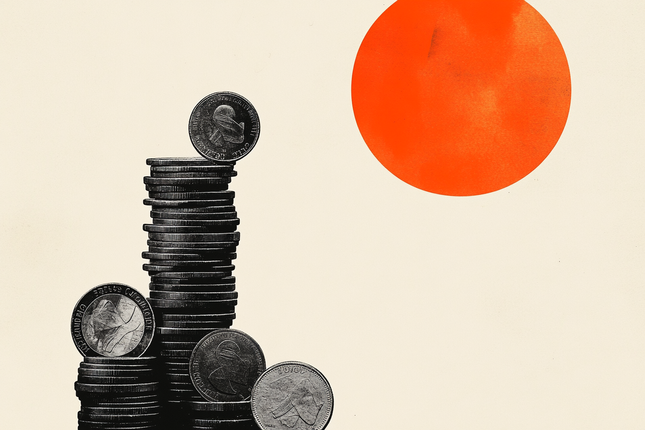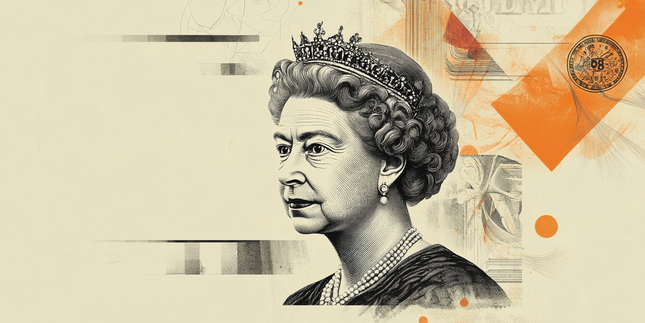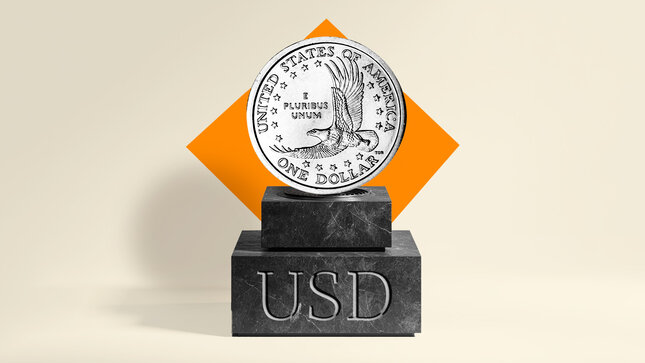NZD/USD Exchange rate
Editors’ Picks

EUR/USD Price Annual Forecast: Growth to displace central banks from the limelight in 2026 Premium
What a year! Donald Trump’s return to the United States (US) Presidency was no doubt what led financial markets throughout 2025. His not-always-unexpected or surprising decisions shaped investors’ sentiment, or better said, unprecedented uncertainty.

Gold Price Annual Forecast: 2026 could see new record-highs but a 2025-like rally is unlikely Premium
Gold hit multiple new record highs throughout 2025. Trade-war fears, geopolitical instability and monetary easing in major economies were the main drivers behind Gold’s rally.

GBP/USD Price Annual Forecast: Will 2026 be another bullish year for Pound Sterling? Premium
Having wrapped up 2025 on a positive note, the Pound Sterling (GBP) eyes another meaningful and upbeat year against the US Dollar (USD) at the start of 2026.

US Dollar Price Annual Forecast: 2026 set to be a year of transition, not capitulation Premium
The US Dollar (USD) enters the new year at a crossroads. After several years of sustained strength driven by US growth outperformance, aggressive Federal Reserve (Fed) tightening, and recurrent episodes of global risk aversion, the conditions that underpinned broad-based USD appreciation are beginning to erode, but not collapse.

Bitcoin Price Annual Forecast: BTC holds long-term bullish structure heading into 2026
Bitcoin (BTC) is wrapping up 2025 as one of its most eventful years, defined by unprecedented institutional participation, major regulatory developments, and extreme price volatility.
Majors
Cryptocurrencies
Signatures
ABOUT NZD/USD
The NZD/USD pair indicates how many US Dollars (USD) are required to purchase one New Zealand Dollar (NZD). Often seen as a minor currency, its relevance stems from New Zealand’s strong commercial ties with its neighbor, Australia, and China. The New Zealand Dollar is commonly referred to as the Kiwi, named after the bird that symbolizes New Zealand.
The New Zealand Dollar, along with the Australian Dollar (AUD) and the Canadian Dollar (CAD), is considered a commodity currency, meaning its value is closely tied to the export of raw materials such as precious metals, Oil, and agricultural products .
For many years, the NZD (like the Australian Dollar) has been one of the preferred choices for carry traders, making it very sensitive to changes in interest rates.
HISTORIC HIGHS AND LOWS FOR NZD/USD
- All-time records: Max: 1.49 on 5/11/1973 – Min: 0.3962 on 16/10/2000
- Last 5 years: Max: 0.7465 on 19/02/2021 – Min: 0.5469 on 13/03/2020
* Data as of December 2024
ASSETS THAT INFLUENCE NZD/USD THE MOST
- Currencies: The Australian Dollar (AUD), the Chinese Yuan (CNY), and the Japanese Yen (JPY), as Australia, China, and Japan are the main economic regional partners of New Zealand. This group also includes the following currency pairs: EUR/USD, GBP/USD, USD/JPY, AUD/USD, USD/CHF, USD/CAD, GBP/JPY and EUR/JPY.
- Commodities: First and foremost, coal. New Zealand has extensive coal resources, contributing approximately 10% to the country’s energy supply (excluding transport fuels). Other key commodities are Silver and Iron Ore.
- Bonds: GNZGB10 (New Zealand 10-Year Government Bond Yield), AGB (debt securities issued by the Australian Government), and T-NOTE 10Y (10-year United States Treasury note).
- Indices: NZX (New Zealand Exchange), ASX (Australian Securities Exchange), and Nikkei 225 (a stock market index for the Tokyo Stock Exchange).
INFLUENTIAL ORGANIZATIONS, PEOPLE AND ECONOMIC DATA FOR NZD/USD
The organizations and people that affect the most the moves of the NZD/USD pair are:
- The Reserve Bank of New Zealand (RBNZ). It is New Zealand's central bank. Its primary role is to “give people, communities and businesses the confidence to spend, borrow and save money” by maintaining a sound and efficient monetary and financial system. The RBNZ achieves this by managing inflation to keep prices stable, regulating banks and finance companies, producing New Zealand’s banknotes and coins and operating effective wholesale payment and settlement systems. The current governor is Anna Breman.
- The New Zealand Government – whose Prime Minister is Christopher Luxon – and its Ministry of Business, Innovation, and Employment (MBIE), which implements policies that affect the economy of the country.
- Asia-Pacific Economic Cooperation (APEC), a forum for 21 Pacific Rim member economies that promotes free trade throughout the Asia-Pacific region.
- The US Government and its President Donald Trump. Administration statements, new laws and regulations, or fiscal policy decisions can influence the value of the US Dollar and its trading pairs, including the New Zealand Dollar.
- The Federal Reserve of the United States (Fed), whose chairman is Jerome Powell . It is the central bank of the US and it has two main targets: to maintain the unemployment rate at its lowest possible levels and to keep inflation around 2%. The Federal Reserve System's structure is composed of the presidentially appointed Board of Governors and the partially appointed Federal Open Market Committee (FOMC). The FOMC organizes eight scheduled meetings in a year to review economic and financial conditions. It also determines the appropriate stance of monetary policy and assesses the risks to its long-run goals of price stability and sustainable economic growth.
Economic data to watch for NZD/USD traders:
- GDP (Gross Domestic Product): The total market value of all final goods and services produced in a country. It serves as a gross measure of economic activity, indicating whether a country's economy is expanding or contracting. A high or a better - than-expected reading is generally positive for the NZD, while a low reading tends to be negative.
- Inflation indicators: Key measures such as the Consumer Price Index (CPI) and the Producer Price Index (PPI) reflect changes in prices.